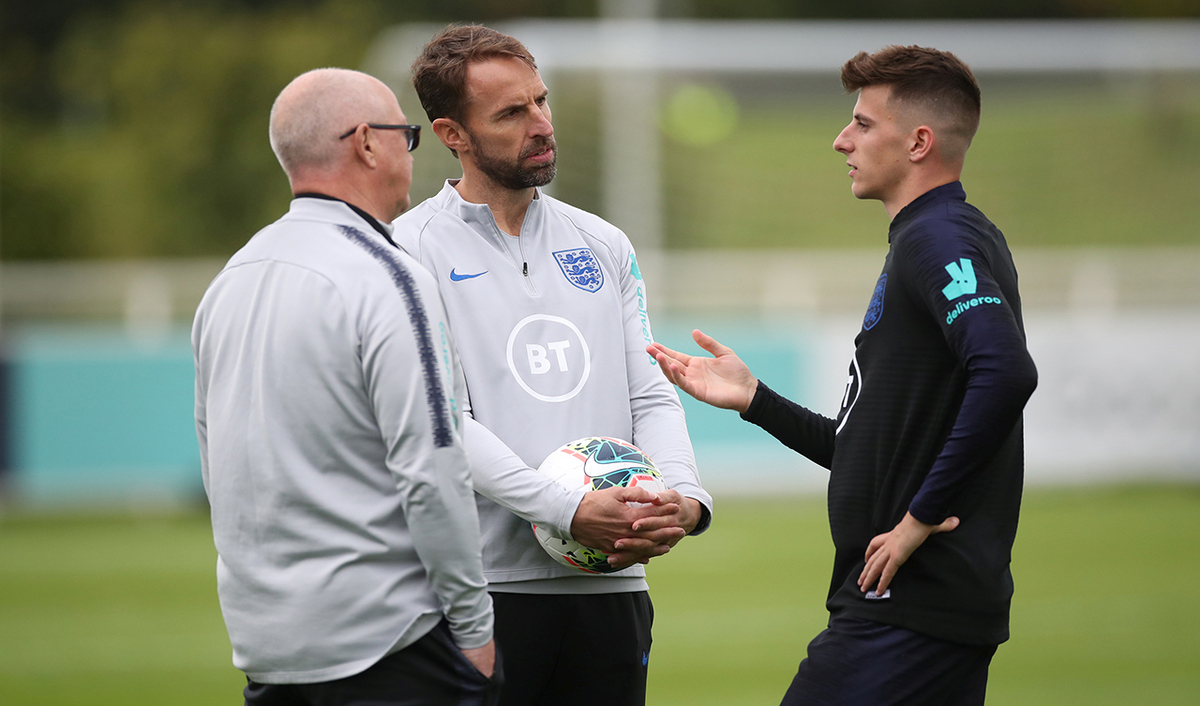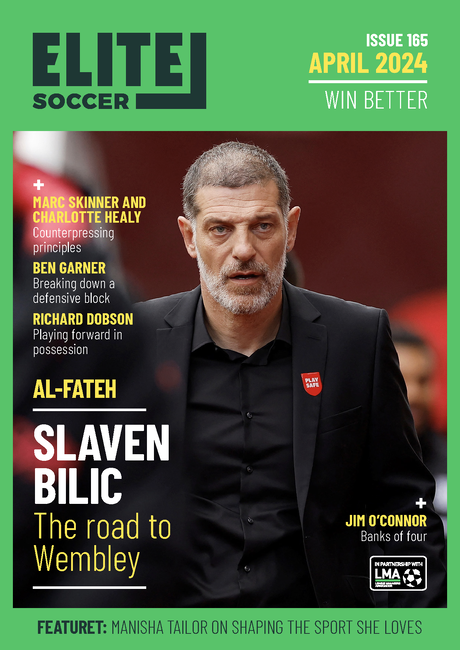You are viewing 1 of your 1 free articles
Creating feedback loops
Sport psychologist Dan Abrahams explains how encouraging players to evaluate their performance can stop them dwelling on their errors
As a former golf coach (now sport psychologist), I’ve always felt that one of the major challenges coaches of team sports have is dealing with the individual differences each player brings with them to training and to the match day pitch. Players have different needs, wants, hopes, doubts, beliefs, expectations, personalities and experiences. They have different values, goals, interpretations, thoughts and feelings. This brings a level of complexity that coaching an individual sport (albeit a brutally tough one in golf) just doesn’t have.
Most of my professional life now consists of helping coaches make sense of the psycho-social component of coaching – it’s vast and can be overwhelming, so helping coaches understand the inner drivers and social aspects that influence behaviour is where I can influence most. Sometimes this requires embracing complexity and accepting that, as coaches, we may never fully understand the dynamic of human behaviour.
That landscape changes a little when I work with players. Limiting players’ internal noise is a big objective of mine. Reducing their anxiety by simplifying their thoughts and feelings is a necessity if I want to help them high perform consistently, under pressure. To meet these objectives I have many tools, one of which is the ‘feedback loop’.
OVER THINKING
Over the past 15 years working with players at the professional level, I’ve generally found them to be over-thinkers. Their training sessions don’t end when they’re showered and changed – they carry every missed shot, every wayward pass, and every mistimed tackle home with them. These inner pictures – these moments of mistake – surface again and again throughout the course of the day and evening. These thoughts plague their mindset and infiltrate the belief they have of themselves. And ultimately, the collection of inner pictures they accrue over the course of a training week rise to impact their performance come match day.
This is why I insist on a simple post game (and post training) ‘feedback loop’ – one that can turn down the volume of worry, doubt and stress.
By ‘feedback loop’ I mean I want a player to train and then feed back to me how things went. I want a player to compete and then feed back to me how well they competed. By doing this, players give themselves an opportunity to close the chapter of a game or training session. They’re telling their brain: “Okay, I’ve assessed how things went, so I don’t have to keep thinking about it.”
In a world now filled with data points, I ask the player for two points of data: a mark out of 10 for performance and a mark out of 10 for mindset. Subjective assessments maybe, but assessments that are meaningful to the player and help them to focus on what went well and what could go better.
After considering their performance, players can ask themselves (or be asked) three open-ended questions for each assessment:
- Why that mark? What went well today to warrant that mark?
- What can you do in the next game (or training session) to give yourself a higher mark?
- Is there anything you learned today that you can use in the future to give yourself a higher mark?
Once a player has answered these questions, he or she can now declare their training session or game is over. The player has engaged in thinking about his or her game, and his or her behaviours, thoughts and feelings. The player has self-assessed and can now move on.
Of course, this is a self-reflective process that takes time (as well as commitment). And it takes practice to improve to become competent at doing it (and probably experience and knowledge to become adept at reflecting on, and being aware of, the mental side of the game). But it’s a process that can be completed in the car on the way home from training or the game. And it’s a practice that can occasionally be done with a coach (or team mate) to garner some external feedback.
MANAGING EMOTIONS
I suggest creating this simple feedback loop with your players, especially the ones you have a hunch might over-think their game (or maybe the ones you feel are a bit low on confidence right now – be assured they will be spending most of their free time mentally rehearsing failure). Its benefits are multiple:
- A greater capacity to rest and recuperate mentally after a game or following training (players who take their mind away from football can rest mentally and subsequently avoid neural fatigue).
- An improved coach/player relationship (especially if you involve yourself in the process of asking questions now and again).
- An improvement in self-skills (self-reflection, self-awareness and self-control), helping them to become a student of their game.
- An ability to self-regulate thoughts and feelings about his or her game, leading to an improvement in focus, confidence and ultimately performance.
Feedback loops don’t need to be complicated. They don’t need to be elaborate or long winded, and they’re allowed to be subjective. The most important benefit is you’re giving players the chance to manage the emotions that accompany the high challenge environment you’re creating in your coaching practice. You’re stretching them and supporting them.
Editor's Picks
Intensive boxes drill with goals
Penetrating the final third
Creating and finishing
My philosophy
Pressing initiation
Compact team movement
Defensive organisation
Back three tactics
Counter-pressing as an offensive weapon
Coaches' Testimonials

Alan Pardew

Arsène Wenger

Brendan Rodgers

Carlos Carvalhal

José Mourinho

Jürgen Klopp

Pep Guardiola

Roy Hodgson

Sir Alex Ferguson

Steven Gerrard
Coaches' Testimonials

Gerald Kearney, Downtown Las Vegas Soccer Club

Paul Butler, Florida, USA

Rick Shields, Springboro, USA

Tony Green, Pierrefonds Titans, Quebec, Canada
Join the world's leading coaches and managers and discover for yourself one of the best kept secrets in coaching. No other training tool on the planet is written or read by the calibre of names you’ll find in Elite Soccer.
In a recent survey 92% of subscribers said Elite Soccer makes them more confident, 89% said it makes them a more effective coach and 91% said it makes them more inspired.
Get Monthly Inspiration
All the latest techniques and approaches
Since 2010 Elite Soccer has given subscribers exclusive insight into the training ground practices of the world’s best coaches. Published in partnership with the League Managers Association we have unparalleled access to the leading lights in the English leagues, as well as a host of international managers.
Elite Soccer exclusively features sessions written by the coaches themselves. There are no observed sessions and no sessions “in the style of”, just first-hand advice delivered direct to you from the coach.







